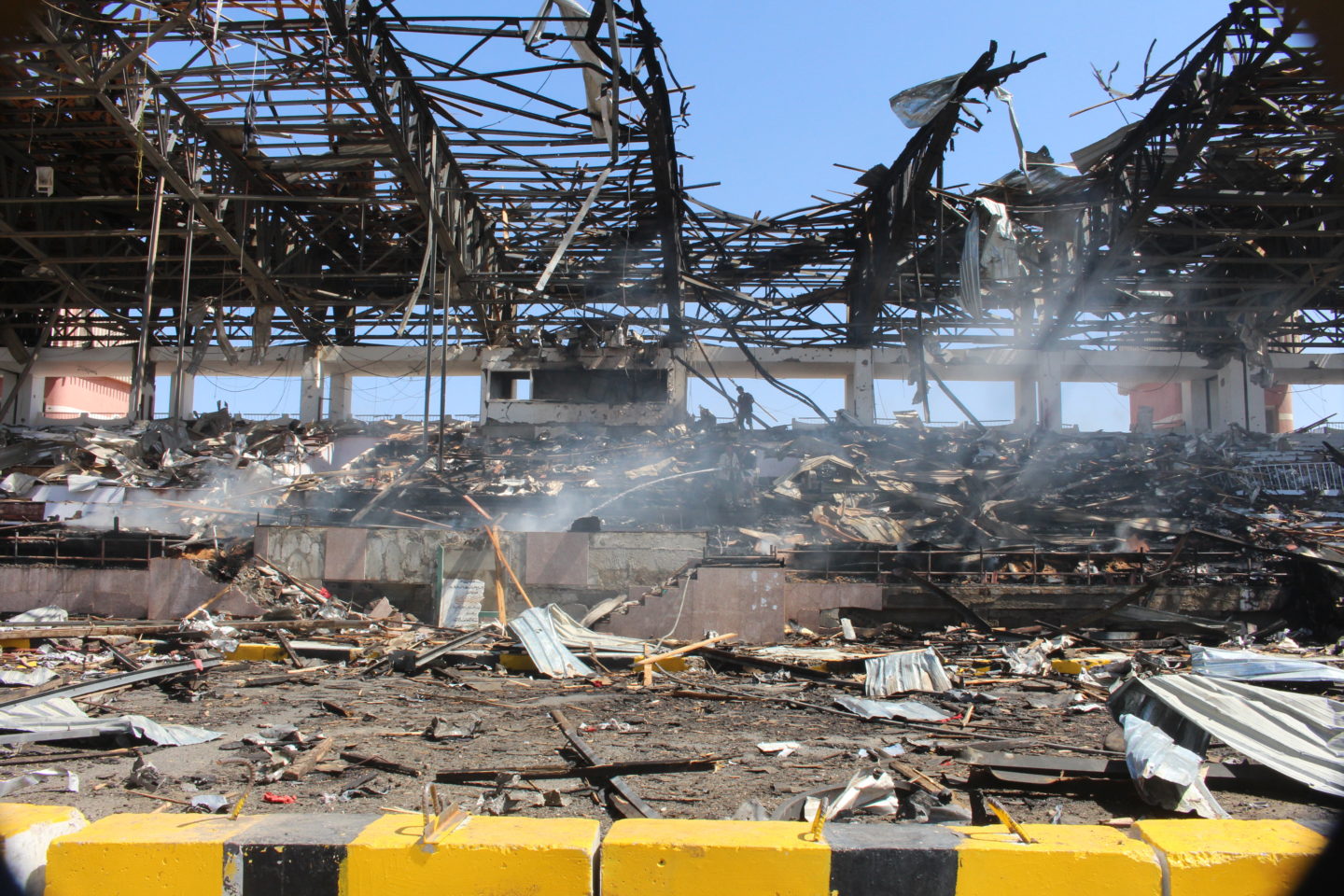The UK government says “new processes” have been established to prevent unlawful arms sales to Saudi Arabia after it emerged a court ruling had been violated several times.
The Secretary of State for International Trade, Liz Truss MP, has issued a statement following an investigation into breaches of a Court of Appeal order made in June that suspended new arms sales to Saudi Arabia.
A landmark judgment reported by The Ferret ruled that licensing military exports to Saudi Arabia for use in Yemen was unlawful.
In response, the government agreed to stop granting new licences to Saudi Arabia and its coalition partners for military goods which could be used in Yemen.
It emerged in September, however, that the Court of Appeal’s order had been violated and an inquiry was ordered.
It was led by Jonathan Mills, the policy director general in the Department for Work and Pensions. Truss has now commented on his finding.
She said: “The report notes the steps that have been taken to ensure that there have been no further breaches. In particular, the report states that the ‘new processes established address the shortcomings that led to the breaches’.”
Truss added: “The process has a greater iterative and real-time involvement, with the weekly meeting process providing more opportunities for information to be updated and changes in circumstances to be reflected in decision-making. There is greater senior involvement and oversight which should strengthen assurance.
“Further steps have already been taken forward, including increased governance and risk management within the Export Control Joint Unit, to meet the issues identified in the report.”
On 26 September 2019 Truss admitted that the UK had breached for a third time a court order banning the sale of weapons to Saudi Arabia. The ban covers weapons that could be used in violations of international law in the conflict in Yemen.
Ten days previously Truss had told the Commons that officials had discovered two violations, forcing her to write to the court of appeal admitting export licences had been unlawfully granted.
Breaches concerned a contract to repair equipment used by Saudi forces to detect improvised explosive devices, she explained, adding that the mistake may have occurred because of a breakdown in communications between government departments.
She also disclosed there had been a further infringement when civil servants authorised the export of fuel gauges for military aircraft to Jordan, which is a Saudi coalition partners.
Export licence system lets ‘illegal’ arms sales to Saudi Arabia continue
Commenting on Truss’s latest statement, Campaign Against Arms Trade (CAAT) called for all UK arms sales to Saudi Arabia to stop.
CAAT’s Andrew Smith said: “These arms sales should not have been approved in the first place. The UK should never have been arming and supporting the Saudi dictatorship or the wider coalition that is bombing Yemen.
“After five years of war, Saudi-led forces have inflicted the worst humanitarian catastrophe in the world on the people of Yemen. UK-made weapons have played a central role in the bombing and the crisis it has created. There must be a full embargo on the sale of all military equipment to the regime.”
In June 2019, following a legal action taken by CAAT, the Court of Appeal ruled that the UK government acted unlawfully when it licensed the sale of UK-made arms to Saudi forces for use in Yemen without making an assessment as to whether or not past incidents amounted to breaches of international humanitarian law.
The UK government was ordered not to approve any new licences and to retake the decisions on extant licences in a lawful manner.
UK export policy states that military equipment licences should not be granted if there is a “clear risk” weapons might be used in a “serious violation of international humanitarian law”.
Saudi Arabia is backing Yemen’s government in a bitter civil war against Houthi rebels, which has claimed the lives of several thousand people.
Photo thanks to iStock/Belal Al-shaqaqi.















Rather like plastic bags, although more obviously lethal, in that if nobody made them then they wouldn’t damage the environment no matter how devious and convoluted the delivery system. Unfortunately money is like water, you’ll not absolutely stop potential leaks unless you turn off the supply and importantly, drain the tank. Ok all rather obvious but if we had the information we could divest. So who is using ethical banking?